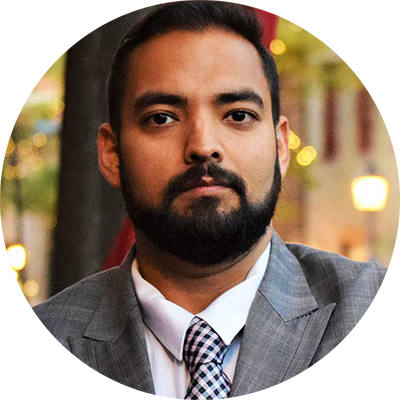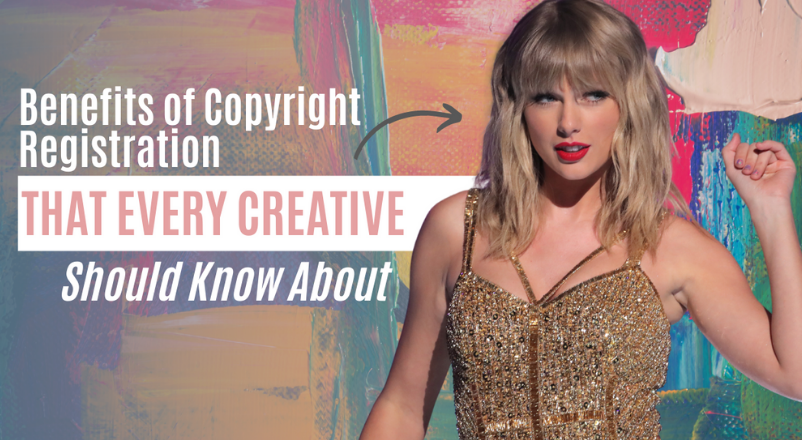As a creative, you’re likely always looking for ways to protect your work from being copied or stolen. While there are many steps you can take to do this, copyright registration is one of the most effective and simplest ways to ensure your work is safeguarded. Here are the benefits of copyright registration that every creative should know about.
You’ve probably seen enough news stories about copyright infringement these days, be it about Google, Apple, or your favorite musical artists. You probably wonder if copyright administration is really necessary.
Copyright protection is a process that allows a layer of legal protection to the creator of an original work. It gives the author the exclusive right to reproduce, distribute, display, or perform the work. Now, whether you’re an artist, musician, writer, sculptor, coder, an architect, or just a person who’s looking to protect their original work of authorship, you might want to know foremostly, what exactly copyright protects.
A copyright protects any original work of authorship fixed in a tangible medium of expression. What does that exactly mean? A few examples of copyrightable work are blogs, books, music, sculptures, architectural designs, and so much more. If you’d like to learn more about what words are copyrightable, please feel free to watch my video on copyrightable works.
Now, let’s get to the benefits.
1. Having a public record of that ownership.
Most copyright lawsuits are centralized around the ownership of the work. Registering a copyright for your work is important for a number of reasons, but one of the most important is that it creates a public record of your ownership. This is vital in the event that someone tries to claim ownership of your work or if you need to take legal action to protect your copyright. Having a registration on file makes it much easier to prove your case in court and helps to deter would-be infringers from taking your work without permission. In short, registering your copyright is an important step in protecting your rights as an artist or author.
Even if the infringer is not claiming ownership over your work, you will be required to prove ownership in court. A public record of ownership is also a deterrent but only determined for the good infringers. The bad infringers will always find a way to copy your work.
2. A presumption of validity.
The public record of ownership provides you a presumption in court and you don’t have to go through the extra steps to provide proof that you are the true owner of the work at hand. If you own a copyright, there is a presumption in court that your copyright is valid. This means that if someone sues you for infringement, they have the burden of proving that your copyright is invalid.
This can be a difficult and expensive task, so the presumption of validity can be a significant advantage. Even if the infringer is able to prove that your copyright is invalid, you may still be able to prevail if you can show that the infringement was innocent or unintentional. Therefore, the second benefit of ownership is a presumption of validity that can be a powerful tool in protecting your rights.
3. It is a prerequisite to file any federal lawsuit claim.
It is imperative that you get your copyrightable work registered at the US copyright office as soon as that first publication of the work happens.
It is a commonly held belief that owning copyright gives creators the exclusive right to exploit their work. However, copyright ownership also confers a number of important legal benefits. For instance, only copyright owners can file a lawsuit for infringement. This means that if you want to sue someone for unauthorized use of your work, you must first register your copyright with the U.S. Copyright Office (USCO). Without registration, you will not be able to proceed with your claim. Therefore, if you are planning on taking any legal action against an infringer, it is imperative that you get your copyrightable work registered at the USCO.
4. It is a prerequisite in obtaining small claims proceedings in the administrative court.
Recently the US copyright office has started allowing copyright owners to have small claims proceedings of up to $30,000 at the copyright claims board. Unlike the infringement lawsuit that you would like to bring in federal court, you don’t need registered copyright from the copyright office. You only need to file the copyright application and you can still argue in the small claims board.
In order to obtain small claims proceedings in the administrative court, you need to file the copyright application and you can still argue. This is because the need to file the copyright application establishes a clear record of the disputed material’s existence and ownership, which can be essential in proving your claim. Additionally, while you can still argue without having filed the copyright application, doing so may make it more difficult to prove your case or may result in a smaller award. As such, if you are considering pursuing small claims proceedings in the administrative court, ensure that you have first filed the necessary copyright application. Doing so will give you the best chance of success.
5. Having a copyright registration is usually a prerequisite for claiming statutory damages and attorney’s fees.
You spend five to six years more than likely on a copyright infringement claim. The actual damages more than likely will not match up to the amount of time, effort, and resources that you have put into that copyright infringement claim.
The only way to avoid not being able to claim statutory damage and claim attorney’s fees from your infringement claim is to register your copyrightable work as soon as possible, This is specifically applied for statutory damages and attorney fees within three months of the first published work or before an infringement occurs.
6. It protects you against counterfeiting.
Copyright owners are able to register their work with the US customs and Border Protection will provide a further layer of protection, where they enforce against the importation of infringing copies of their work.
If you’re thinking about copyrighting your work, you might be wondering if it’s really worth the hassle. After all, registering your copyright will require you to pay a fee and fill out some forms. But in addition to the peace of mind that comes from knowing your work is formally protected, copyright registration also provides a further layer of protection against counterfeiting. If someone does try to pass off your work as their own, you’ll be in a much stronger position to take legal action if you’ve registered your copyright. So while it may not be required, copyright registration is definitely worth considering if you want to give yourself the best possible chance of protecting your work.
Now, what is required to file and draft a copyright application?
- You need to properly complete your copyright application.
- You have to pay the right filing fees.
- You need to submit a non-returnable copy of your work.
The next you might ask is how soon should I register my copyrightable work?
Hopefully, this post lets you know how urgent I would like for you to be as soon as your work is put into a tangible medium of expression. That means as soon as you have your first publication, you should be running to the US copyright office to register your copyright of a work to provide you as much protection as possible, moving forward.
As you can see, there are many benefits to registering your copyright. I hope this post has made it clear how important it is for you to take action as soon as possible to protect your work. If you have any questions or want more information, please don’t hesitate to reach out. I would be happy to help in whatever way I can and answer any of your questions. Thanks for reading and stay safe out there!
If you found this post interesting and would like to discuss more or would like assistance in your copyright needs, please feel free to register for a discovery call through this.
DISCLAIMER: DrishtiTalks is made available by the law firm, Drishti Law, LLC, for educational/informational purposes. The intent of DrishtiTalks is to provide a general understanding of the law and not to provide legal advice. The use of this site, commenting on posts, or sending inquiries through the site or contact email, does not confirm an attorney-client relationship between you and the Blog, DrishtiTalks, or Website publisher, Drishti Law, LLC. The Blog/Website should not be used as a substitute for competent legal advice from a licensed attorney in your jurisdiction.

Sahil Malhotra
Sahil Malhotra is an Intellectual Property Attorney, who founded Drishti (“vision”) law because of his vision in protecting dreams and ideas.
He provided individuals and small businesses with an opportunity to enhance their IP’s value by helping them register trademarks and successfully argue against office actions. In addition to his training and experience, he has been deeply involved in the multifaceted IP portfolio at UIC and continues to be associated with IP organizations and conferences.
To know more about Sahil Malhotra — Click Here
You may follow Sahil Malhotra on Facebook: Sahil Malhotra and on Instagram: @Sahil Malhotra

